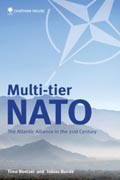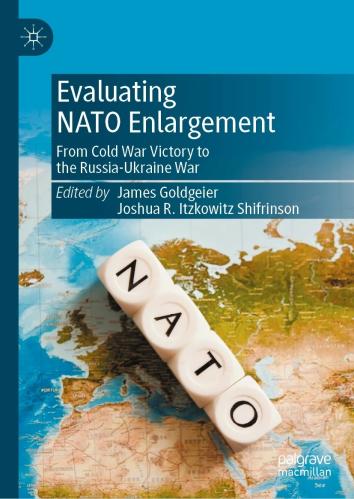This post was updated on May 26.
On Friday, May 19, President Trump embarked on his first overseas trip as president. He first visited the Kingdom of Saudi Arabia; then Israel with a stop in Bethlehem in the West Bank; and then went to the Vatican where he had an audience with Pope Francis. On May 25, the president met with the EU and European Council presidents and then met with NATO leaders. On the final leg of this trip, President Trump is in Italy May 26-27 for the G-7 meeting on the island of Sicily.
Brookings experts have been and will continue to offer their analyses and commentary on the trip and the relevant policy issues. Here is what they have said thus far. This page will be updated as the president’s trip unfolds.
NATO SUMMIT
The White House told the NYT yesterday Trump would finally endorse Article 5. The fact that he did not is astonishing and shows 1/n
— Tom Wright (@thomaswright08) May 25, 2017
Trump's trip had been a relative success until now. It is now a failure. Close to a disaster unless he fixes it later today 3/3
— Tom Wright (@thomaswright08) May 25, 2017
Michael O’Hanlon says President Trump’s decision to not explicitly endorse Article 5 of the NATO treaty is “regrettable” but “a relatively minor mistake.” He explains that the article itself is ambiguous in what commitment for action it requires of member states, and, moreover, the continued presence of U.S. troops in Poland and the Baltic states and the president’s statement that “NATO is no longer obsolete” offer reassurance about America’s obligations.
Tom Wright, director of the Center on the United States and Europe, wrote that President Trump needs to state his support for NATO’s original mission and America’s solemn commitments if the alliance is to be as effective in the future as it has been in the past.
Michael O’Hanlon revisited Trump’s position toward NATO and explores the alliance’s agenda moving forward as NATO faces the future state of European security and its relationship with Russia. Listen:
Bill Galston reported on new Pew Research Center data about Europeans’ and Americans’ attitudes about NATO and how Europeans view their nations’ mutual defense obligations under Article V of the NATO treaty.
ISRAEL
Hady Amr says the Trump administration should work to implement Israel’s proposed steps to improve Palestinians’ access to land in the West Bank, including rezoning some areas and expanding hours that Palestinians can enter the West Bank from Jordan.
Natan Sachs, director of the Center for Middle East Policy, explored the opportunities for forming both policy and image. Listen:
Visit the Center for Middle East Policy for more research and commentary on a range of issues related to the Middle East.
Shalom Lipner commented on the matter of moving the U.S. embassy from Tel Aviv to Jerusalem, something President Trump has suggested he might, at some point, do. But Lipner says that, “From an Israeli perspective, moving the U.S. Embassy would simply correct an injustice and affirm existing reality. Beyond that, it would be of scant practical importance.”
Palestinian President Mahmoud Abbas and President Trump met during the trip. Writing in the wake of their meeting on May 3, Shibley Telhami observed that by large margins Trump voters and Republicans lean toward Israel when it comes to a question of the administration’s role in mediating the Israeli-Palestinian conflict.
SAUDI ARABIA
“I am reassured that there wasn’t anything extremely offensive said about Islam. It’s a low bar I guess, but Islam here is included as part of a common civilizational front.” – Shadi Hamid, Weekend Edition Sunday
Will McCants argued that Trump’s trip to Saudi Arabia and his planned gathering with Muslim leaders are the perfect opportunity for progress toward fulfilling his promise to eradicate “radical Islam” by pressing the Saudi government to end its export of religious extremism.
McCants also offered the president eight do’s and don’ts for his planned remarks on counterterrorism and Islam during a lunch with Muslim heads of state. “Repeat campaign talking points,” McCants says, “and he will infuriate the Muslim heads of state and the citizens they represent. Praise Islam effusively, and he will frustrate the people who elected him.”
Shadi Hamid shared his worries about President Trump delivering a speech about Islam, and says that the “most glaring problem is the very premise of the speech–the assumption that theology holds the key to combating terrorism.”
Bruce Riedel gave some historical context of U.S. presidential trips to the kingdom and engaging with Saudi royals, including Franklin Roosevelt, Nixon (who was the first American president to visit the kingdom), George H.W. Bush, and Obama. Riedel also looks at the priorities of the Saudi royal family for their encounter with President Trump,
Dan Byman contextualized Saudi Arabia’s relationship with the U.S. under President Obama and considers how this dynamic will change as President Trump’s visit approaches. “There’s a real chance for a reset with President Trump’s visit,” Byman says. Listen:




Commentary
Brookings experts on President Trump’s first trip overseas
May 19, 2017